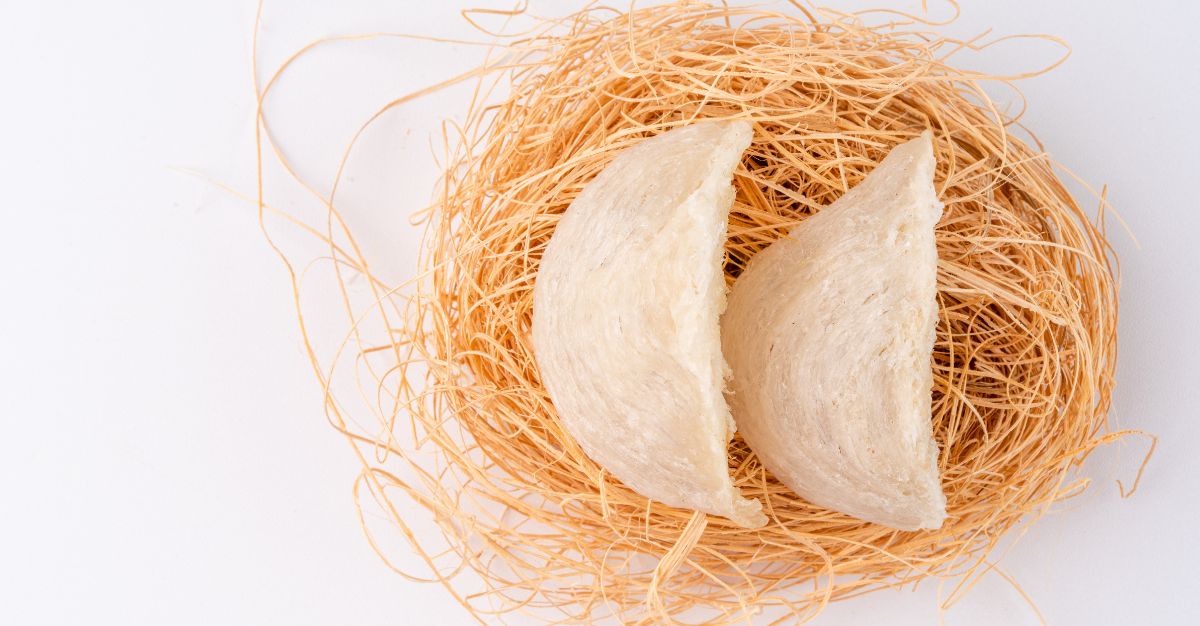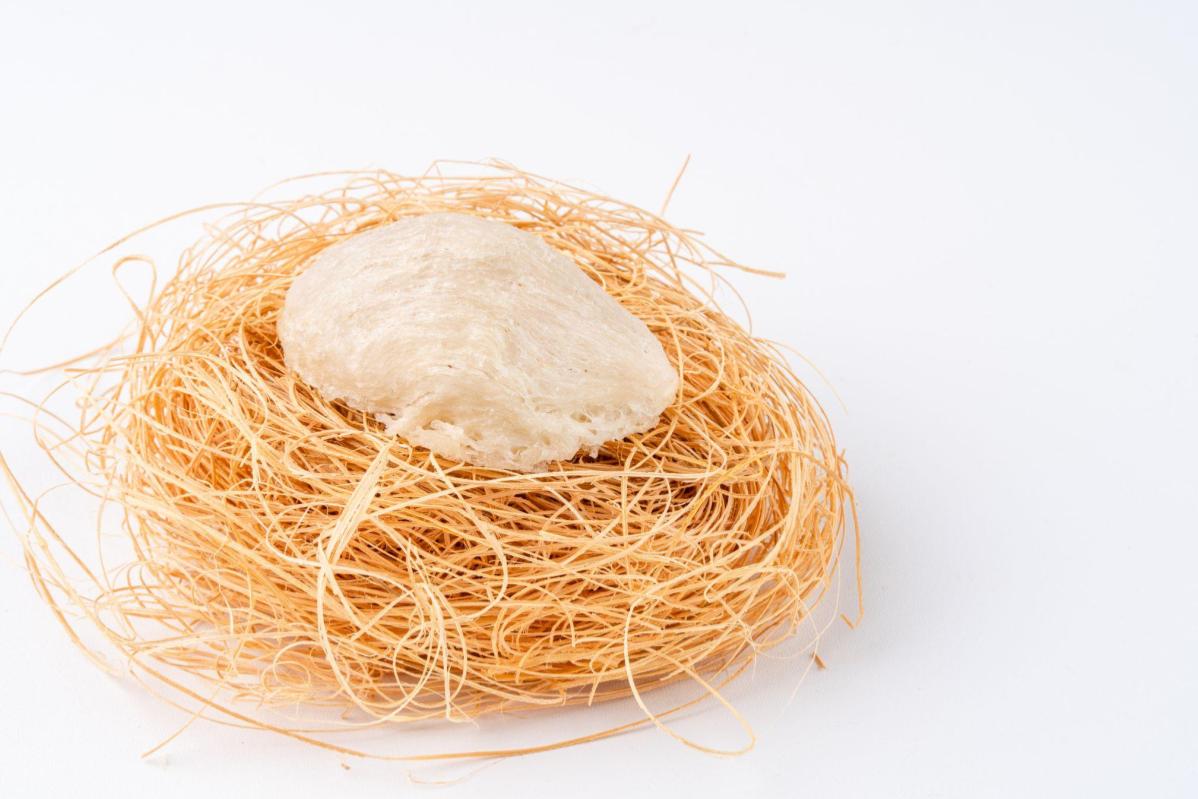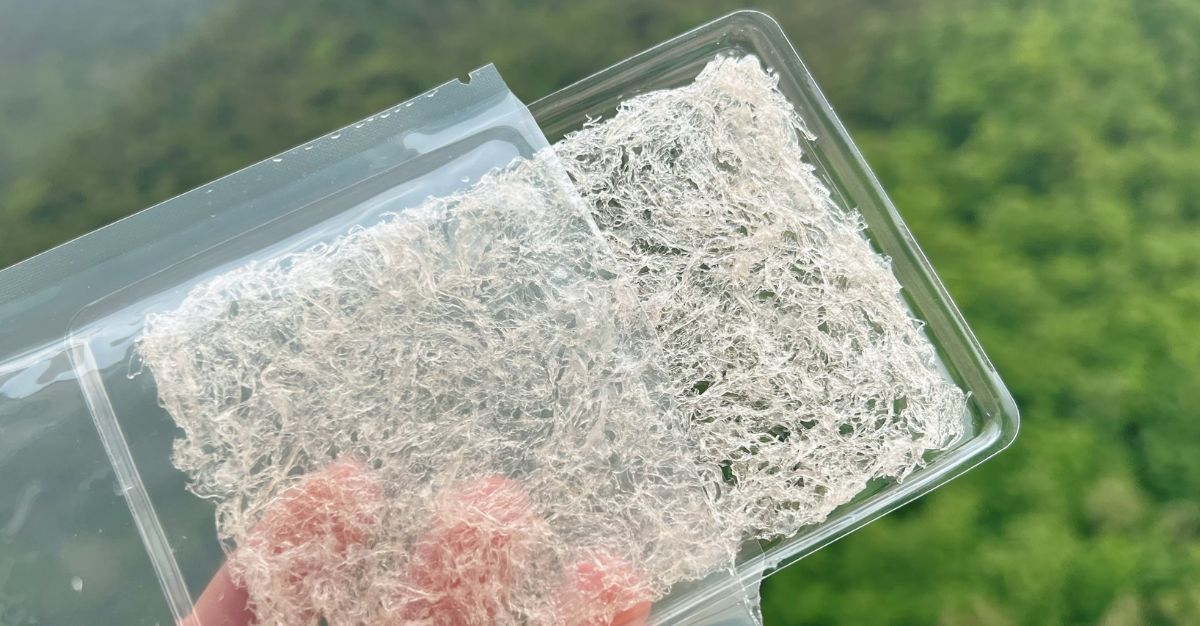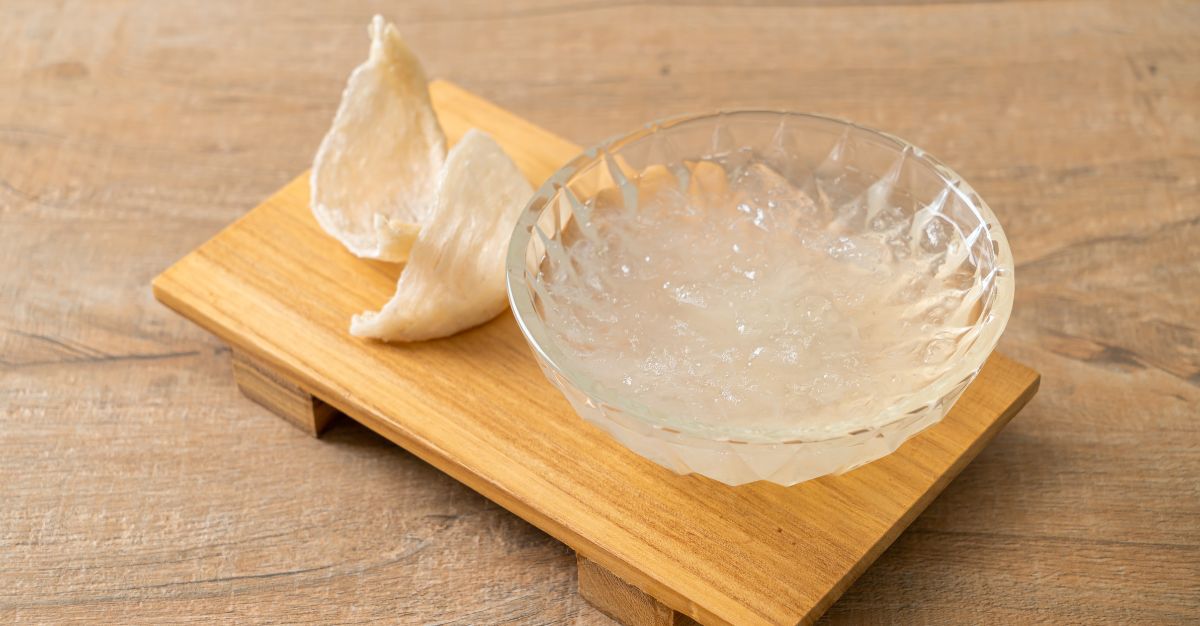
Bird’s nest is a unique and highly prized delicacy in many cultures, especially in Asia. It is made from the nests of certain species of swiftlets, who build them using their saliva. Bird’s nest is known for its rich nutritional content and is believed to have many health benefits, including improving skin complexion and boosting the immune system. Here are 10 interesting things you should understand about bird’s nest:
1 . Bird’s nest is not the swiftlet’s saliva.
The swiftlet’s mouth can secrete colloidal saliva, which is the main component of the bird’s nest. This secretion is not saliva; the swiftlet’s saliva is only for digesting food. The colloidal saliva of swiftlets is secreted from the sublingual glands under the tongue of swiftlets on the deep surface of the mucous membranes on both sides of the bottom of the mouth. The salivary glands of swiftlets in the nesting stage are very developed, so they will become bird’s nests when they spit them out.
2. Picking the bird’s nest does not make swiftlets homeless.
Bird’s nests play a main role in helping swallows hatch their eggs. After the baby swallows grow up, they leave the nest, and when the swallows want to lay eggs again, they build a new nest instead of using the old one. By responsibly collecting these nests, it will be beneficial in helping the swallows have more space to build their nests and maintain a healthy ecological balance.
3. Bird’s nest is believed to have medicinal properties and has been utilised in traditional Chinese medicine for centuries.
In traditional Chinese medicine, a bird’s nest is considered to have a wide range of health benefits. It is thought to strengthen the immune system, improve skin complexion, and boost energy levels and many more.
4. Bird’s nest is best eaten on an empty stomach.
Consuming bird’s nest on an empty stomach before breakfast can significantly enhance nutrient absorption in our body. During the morning, the gastrointestinal tract is fully awakened, and the digestive system operates at its peak efficiency, with no food present in the stomach for digestion. Opting to eat bird’s nest during this time allows for rapid digestion and maximises nutrient absorption capacity, providing the best possible benefits for your health and well-being.
5. The colour and texture of a bird’s nest can vary depending on the species of swiftlet and the location of the nest.
Cave nests normally exhibit red and orange tones, while House nests tend to be off-white during the rainy season and slightly yellow during the dry season.
6. The size of the bird’s nest does not determine the quality of the bird’s nest.
Bird’s nests are often classified into different grades, ranging from 3A (lowest) to 7A (highest). However, it’s important to note that the size of the nests does not directly determine their nutritional value or quality. The grading system primarily serves as a reference for evaluating the size of the nests rather than their overall attributes related to nutrition and quality.
7. Bird’s nest has an irreplaceable high nutritional value.
This exquisite delicacy comes with a price tag that reaches thousands of dollars per kilogram. This is due to its rarity, and the extensive effort required to harvest it contributes to its exclusivity, making it one of the most coveted and expensive food products globally. The bird’s nest’s exceptional nutritional composition, brimming with essential amino acids, minerals, and beneficial bioactive compounds, adds to its allure and justifies its remarkable value.
8. The recommended daily intake of bird’s nest is 3-5 grams.
The amount of bird’s nest needed by our body is 3-5 grams. If it is less than 3 grams, the body cannot absorb the nutrients; if it is more than 5 grams, it will not cause harm to the body, but the effect is the same as 3-5 grams. The most important thing is to insist on eating bird’s nest, and you will see the effect when you eat bird’s nest regularly.
9. Pure bird’s nest exhibits a delicate aroma reminiscent of egg white.
Bird’s nest, crafted from swiftlet’s saliva interwoven with feathers, primarily consists of protein-rich swiftlet nest saliva. During the stewing process, a natural egg white aroma is typically present, signifying its authentic quality. The absence of this characteristic scent may indicate potential quality concerns.
10. Bird’s nest is believed to have anti-ageing properties for the skin.
In addition to its medicinal properties, bird’s nest is believed to have anti-ageing benefits for the skin. The unique substance in the bird’s nest called Epidermal Growth Factor (EGF) is known to enhance a youthful complexion, manage skin irritation, stimulate cell growth and repair damaged tissue.
If you’re wondering what bird nest drink is good for, find out below.
7 Reasons Why Bird’s Nest Is Good

Bird’s nest is a nutrient-rich food used for many centuries in traditional medicine and cuisine. It is believed to offer a range of health benefits. In this way, the bird’s nest has become an essential ingredient in many traditional remedies and recipes and is considered a valuable addition to any healthy diet. Here are some main reasons a bird’s nest is good.
- Boosting Immune System
Bird’s nest contains compounds that help to strengthen the immune system, protecting the body against infections and illnesses.
- Promoting Tissue Growth And Repair
A bird’s nest’s proteins and amino acids support tissue growth and repair, making them a valuable ingredient in recovering from injuries and illnesses.
- Enhancing Skin Health
Bird’s nest is rich in antioxidants and glycoproteins, which can aid in reducing inflammation and promote healthy, youthful-looking skin.
- Improving Respiratory Health
Due to its anti-inflammatory and immune-boosting properties, Bird’s nest has been utilised in traditional Chinese medicine to treat respiratory ailments, including asthma and bronchitis.
- Boosting Energy Levels
A bird’s nest’s high protein content can help increase energy levels and reduce fatigue, making it a popular ingredient among housewife and active individuals.
- Supporting Digestive Health
Bird’s nest is believed to have a soothing effect on the digestive system, reducing inflammation and promoting healthy digestion.
- Enhancing Brain Function
The compounds in a bird’s nest may help to improve cognitive function and memory, making it a valuable ingredient for those looking to support their brain health.
Summary
To sum up, bird’s nest is a highly sought-after delicacy with a rich history and potential health advantages. From its traditional use in Chinese medicine to its place in modern cuisine, the bird’s nest remains a valuable and highly-regarded ingredient.
As with any sought-after product, it’s vital to purchase bird’s nest from a reputable source to ensure that it has been harvested sustainably and safely. Look for bird’s nest from reputable stores with good reviews and certifications of authenticity to ensure that you’re getting a quality product that has been ethically and sustainably sourced.





